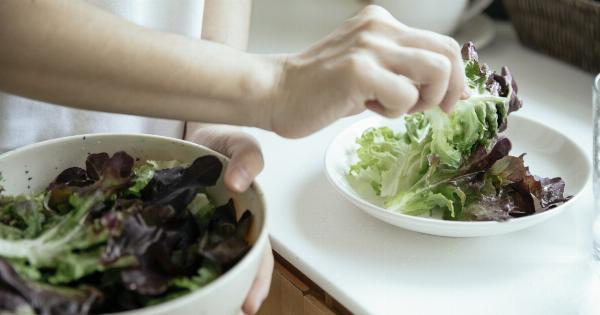Iron is an essential mineral that plays a crucial role in the body. It is necessary for oxygen transport in the blood, energy production, and maintaining a healthy immune system.
Without enough iron, you may feel fatigued, weak, and have trouble concentrating.
There are two types of iron: heme and non-heme. Heme iron is found in animal products and is more easily absorbed by the body. Non-heme iron, found in plant-based foods, is not as easily absorbed.
However, pairing non-heme iron with foods high in vitamin C can increase absorption. Here are three iron-rich foods that can help you boost your iron levels:.
1. Spinach
Spinach is a leafy green vegetable that is loaded with iron. One cup of cooked spinach contains around 6 milligrams of iron. Additionally, spinach is high in vitamin C, which can help increase iron absorption.
Adding spinach to a salad or smoothie is an easy way to incorporate this iron-rich food into your diet.
2. Lentils
Lentils are a type of legume that are packed with nutrients, including iron. One cup of cooked lentils contains around 6 milligrams of iron. Lentils are also a great source of protein, fiber, and folate.
They can be added to soups, stews, or salads for a nutritious boost.
3. Red Meat
Red meat, such as beef or lamb, is a rich source of heme iron. A 3-ounce serving of beef contains around 3 milligrams of iron.
However, it is important to note that red meat should be consumed in moderation as it is also high in saturated fat and can increase the risk of certain health conditions. Pairing red meat with vitamin C-rich foods, such as citrus fruits or leafy greens, can also help increase iron absorption.
Other good sources of iron include tofu, oysters, chickpeas, quinoa, and fortified cereals.
If you are concerned about your iron levels, it is important to speak with your healthcare provider before making any changes to your diet or supplement regimen.
Conclusion
Iron is an important nutrient that is essential for many bodily functions. Incorporating iron-rich foods into your diet can help boost your iron intake and prevent deficiencies.
Spinach, lentils, and red meat are three great sources of iron that can be easily added to meals. Remember to pair non-heme iron sources with vitamin C-rich foods for optimal absorption. Speak with your healthcare provider if you are concerned about your iron levels or have any underlying health conditions.




























